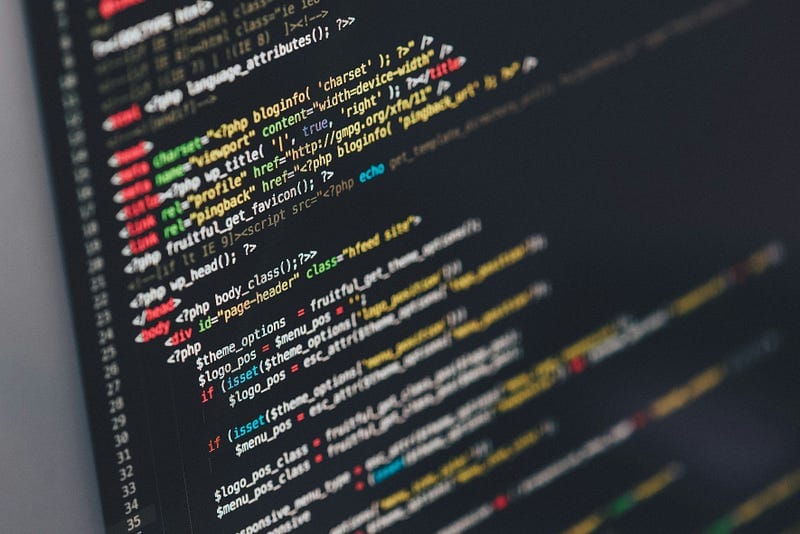What a Week of Real Python Coding Looks Like (Unfiltered)
Forget the perfectly polished GitHub repos — here’s an honest look at the wins, frustrations, and random bug hunts that make up a true…

The messy, brilliant reality behind the clean code you see online.
Forget the perfectly polished GitHub repos — here’s an honest look at the wins, frustrations, and random bug hunts that make up a true week in the life of a Python developer.
The Truth Behind “A Week in the Life”
If you scroll through tech blogs or YouTube tutorials, you might think Python coding is all about elegant solutions, clean commits, and perfect tests passing on the first try.
It’s not.
Real-world coding is messy. It’s equal parts productivity and procrastination, progress and rabbit holes, brilliant breakthroughs and baffling bugs.
I decided to track one full week of my Python coding work — warts, typos, Stack Overflow searches, coffee breaks, and all. The result was both humbling and oddly inspiring.
Here’s exactly what it looked like.
Monday: Setting the Stage (and the Scope Creep Begins)
I started the week with a simple plan:
- Add a new feature to an internal data pipeline.
- Refactor an old script for better performance.
- Wrap it all up before Friday.
Simple. Right?
By lunch, I’d already spent two hours debugging a CSV encoding issue that turned out to be… an extra space in a file name.
A few key Monday takeaways:
- Never trust “quick fixes” — they usually hide bigger problems.
- Even “tiny” changes in a data pipeline can ripple into unexpected parts of the system.
- Documentation you wrote six months ago is just vague enough to be useless.
The day ended with half the new feature implemented, zero refactoring, and a Post-it on my monitor that read: “Ask about CSV imports at standup.”
Tuesday: Progress, Interrupted
Tuesday started strong. I wrote a new function for transforming data in under an hour — clean, readable, and (I thought) bug-free:
def normalize_string(value: str) -> str:
return value.strip().lower().replace(" ", "_")Five minutes later, QA found that it broke 7% of the dataset because some entries were None or integers. My perfect little function got rewritten to:
def normalize_string(value) -> str:
if not isinstance(value, str):
return value
return value.strip().lower().replace(" ", "_")Lesson learned: in production, “type safety” isn’t optional — it’s survival.
The rest of the day? Meetings. A three-hour “alignment session” that ate into coding time and pushed my refactoring goal even further out.
Wednesday: The Great Environment Meltdown
Around 10:30 AM, my virtual environment refused to load. No matter what I did — pip install, python -m venv, even nuking .venv — something kept breaking.
Two hours later, the culprit emerged: a dependency updated to a version incompatible with our Python 3.8 setup.
This was the day I remembered the golden rule:
- Pin your dependencies.
- And for the love of all things Python, use a requirements.txt or Poetry lockfile.
I rolled back the package, got things running, and swore to myself I’d set up proper dependency management… after I hit my feature deadline. (Narrator: I did not set it up that week.)
Thursday: Flow State at Last
Finally, the stars aligned. I blocked off my calendar, turned off Slack notifications, and got four glorious hours of uninterrupted coding.
By the end of the session:
- The new feature was done.
- Tests were passing.
- I even added docstrings.
And the feeling? Like hitting a perfect golf swing or cooking a dish that turns out exactly like the picture.
That afternoon, I dove into the refactor. Halfway through, I realized I could replace 40 lines of clunky code with a Python one-liner using list comprehensions:
filtered_users = [u for u in users if u.is_active and not u.is_admin]It’s always humbling to see how much old-me overcomplicated things.
Friday: The Merge, The Bug, The Weekend
Friday morning, I merged the new feature into the main branch. Everyone was happy. CI/CD pipeline passed. Victory!
Until 3:45 PM.
That’s when a downstream process failed because my code output slightly different column names than expected.
Was it catastrophic? No. Did it mean another hour of fixing and redeploying instead of heading out early? Absolutely.
Friday ended the way most dev weeks do:
- A sense of accomplishment.
- A few battle scars.
- And a mental note for “things I’ll totally improve next week” (spoiler: I won’t).
After living through — and documenting — this week, a few truths stood out:
- Most of coding isn’t glamorous. The “hero moments” are rare. Most of the job is careful, patient problem-solving.
- Small issues become big ones fast. Whether it’s a stray space in a filename or an unpinned dependency, little problems snowball.
- Refactoring is a constant battle. You never “finish” cleaning up old code. You just make it a little better over time.
- Flow state is precious. Guard it like treasure.
- Bugs are inevitable. Even on a “perfect” Friday.
If You’re a Python Dev, Remember This
The polished tutorials and beautiful GitHub projects you see are the highlight reels. Real Python development is messy, unpredictable, and deeply human.
That’s not a bad thing. In fact, it’s what makes it satisfying. The bugs, the quick wins, the “why is this not working” moments — they’re all part of the craft.
So the next time you’re deep in a frustrating debug session, remember: you’re not failing — you’re just living a normal week in Python.
Great code might be clean, but getting there never is.



